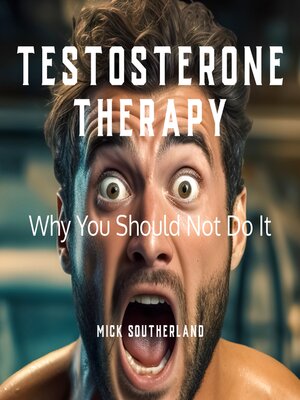
Sign up to save your library
With an OverDrive account, you can save your favorite libraries for at-a-glance information about availability. Find out more about OverDrive accounts.
Find this title in Libby, the library reading app by OverDrive.



Search for a digital library with this title
Title found at these libraries:
| Loading... |
This audiobook is narrated by a digital voice.
"Testosterone: Why You Should Not Do It" is a thought-provoking and informative book that provides a compelling argument against the use of testosterone therapy. Instead of promoting the treatment, the book delves into the complexities, risks, and potential downsides associated with testosterone therapy.
The book starts by offering a detailed understanding of the role of testosterone in the body, both in its natural state and when supplemented through therapy. It emphasizes the importance of maintaining hormonal balance and highlights the potential risks and drawbacks of altering this balance. Readers gain insight into short-term and long-term side effects, demographic-specific risks, and the significance of considering personal health circumstances when contemplating testosterone therapy.
Psychological and behavioral aspects are crucial elements of the discussion, as the book explores the potential mental and emotional impacts of testosterone therapy. It also addresses societal pressures and ethical considerations surrounding its use, reinforcing the argument against pursuing this treatment option.
Furthermore, the book discusses the regulatory landscape and the ethical responsibilities of healthcare providers. This knowledge empowers readers to engage in meaningful discussions with their healthcare professionals, ensuring that treatment decisions are well-informed and driven by a comprehensive understanding of potential risks.
While the book firmly discourages testosterone therapy, it does not leave readers without alternatives. It explores various non-hormonal approaches to address the health concerns that might lead individuals to consider testosterone therapy, encouraging a more holistic and natural approach to wellness.






